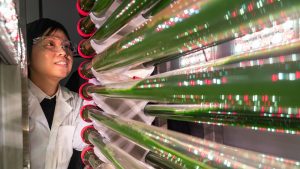
Feb. 2, 2026
Lab-grown algae removes microplastics from water
Professor Susie Dai has used genetic engineering to create a new kind of algae that grows in wastewater and can turn microplastics into biomass that is easy to collect and remove.
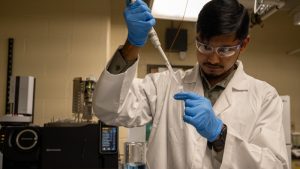
July 10, 2025
Protecting public health by investigating drinking water and soil contamination
PhD student Dibya Kanti Datta seeks to raise public awareness about emerging threats like microplastics and highlight the importance of environmental stewardship.
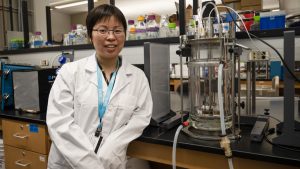
July 1, 2025
Inspired by nature, researcher targets forever chemicals
Mizzou Engineering Professor Susie Dai is pioneering a scalable solution to clean up harmful PFAS without rare or expensive chemicals.
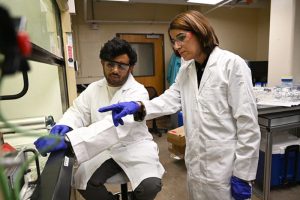
Sep. 16, 2024
Designing a better water filter
Mizzou researcher Maryam Salehi is developing a fabric-like filter to remove tiny plastics and lead from drinking water.
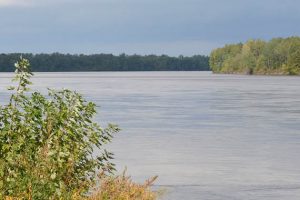
June 7, 2024
Missouri Water Center receives more than $700,000 in EPA seed grant funding
Cross-disciplinary researchers to look at water quality, quantity issues through eight research and education projects at the Missouri Water Center.
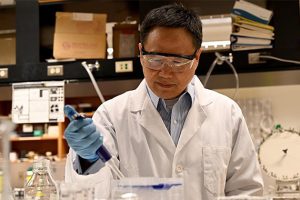
June 6, 2024
Helping safeguard a new reservoir in north central Missouri
Researchers at the Missouri Water Center have been awarded a $5 million grant from the U.S. Environmental Protection Agency for sustainable water management. They’ll use the funds to ensure that the water remains safe as the basin fills.
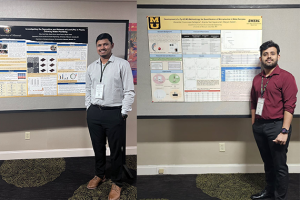
April 12, 2024
Water and Environmental Research Lab team takes honors at statewide meeting
For the second year in a row, a Mizzou Engineering research group snagged an overall first place and a third-place award in the student poster competition at the joint annual meeting of the Missouri Water Works Association (MO-AWWA) and the Missouri Water Environmental Association (MWEA).

March 19, 2024
Ensuring a safer world: Baolin Deng
When Baolin Deng, University of Missouri William Andrew Davidson Professor of Civil and Environmental Engineering and co-director of the Missouri Water Center, went off to college at China University of Geosciences, he dreamed of discovering hidden mines and treasures. Little did he know that removing arsenic and other pollutants from water would actually be his calling.
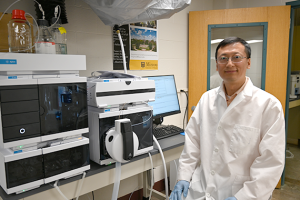
Jan. 10, 2024
Engineering professor outlines challenges, strategies around ‘forever’ chemicals in Nature Water journal
Water treatment systems in the U.S. are more than a century old, allowing contaminants to pollute our drinking water and cause health problems. There are technologies that would help states and cities filter out these chemicals without having to replace entire treatment systems; however there’s no mandate for governments to install them. Short of that, there are non-technical solutions that could help reduce pollution levels. Civil and Environmental Engineering Associate Professor Feng “Frank” Xiao outlined these challenges and strategies in a paper published in a Nature journal, Nature Water. Xiao is specifically looking at ways to treat per- and polyfluoroalkyl substances (PFAS), or 'forever' chemicals, which are found in household and industrial products. These chemicals are ending up in our water and causing various medical conditions.

Dec. 4, 2023
Mizzou Engineer helps study effects of hurricanes on water, sediment quality
With heavy rainfall and strong winds, hurricanes can alter the make-up of ecosystems, pushing salt water into freshwater bodies and disturbing sediment on the ocean floor. While this impacts water quality and disrupts aquatic life, the effects of hurricanes on water and sediment quality aren’t well understood. Enter Maryam Salehi, an assistant professor of civil and environmental engineering at Mizzou. Salehi is an expert in the transport and fate of contaminants, including microplastic pollution.